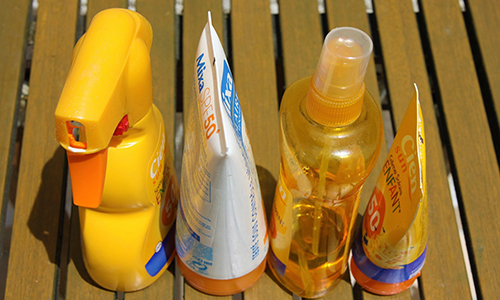- Free Consultation: (907) 277-3090 Tap Here to Call Us
Smart Alaskans Use Sunscreen

Smart Alaskans Use Sunscreen – The most common cause of skin cancer is by exposure to ultraviolet (UV) light. Despite not being a hot climate like the Lower 48, Alaska’s sun can still cause sunburn and skin damage. Long summer days mean you’re exposed to the sun for a longer period, increasing the risk of sunburn.
The best way to protect skin from the dangers of UV light is to monitor sun exposure, wear protective clothing and use sunscreen regularly. Smart Alaskans Use Sunscreen. However, it can be difficult however to understand what kind of sunblock to use.
How Sunscreen Works
Sunscreen works by filtering or absorbing the suns UV rays using inorganic or organic ingredients. Organic ingredients absorb and convert the UV rays, releasing the energy as small amounts of heat. Inorganic ingredients absorb, reflect, or scatter UV rays by forming a physical barrier on the skin. Therefore, a combination of the two types of ingredients serve the best protection.
Types Of Sunscreen
There are different types of sunscreen to use for different parts of the body, such as lotions, creams, sprays, gels and sticks. The most commonly used sunscreen is lotion. Lotions are best used to cover a large area of skin and are good when a lot of areas will be exposed to the sun. Creams are greasier than lotions and are good for dry skin types. Spray sunscreen is easy to apply to large area but may not provide full coverage if not applied correctly. When using a spray sunscreen, ensure that you spray a generous and even coat. Gel lotions are good for areas containing hair, such as the scalp or chest. Finally, sunscreen sticks are good for the face, especially around the eye area. Each person may prefer or need a different type of sunscreen depending on skin type and needs.
Benefits of Water Resistant Sun Protection
Water resistant sunscreen is useful, especially for children. The terms “water resistant” or “waterproof” means the sunscreen is resistant to water for 40-80 minutes. Check the label to determine the time for water resistance. When outside in the water, it is important to reapply sunscreen to ensure skin remains protected.
Understanding Sun Protection Factor (SPF)
Sun protection factor (SPF) is the measurement of how well a particular sunscreen protects against UVB rays. The measurement is determined by how long it takes for skin to sunburn when treated with sunscreen vs. no sunscreen. Expert recommendation is to use at least SPF 30 for sunscreen to protect skin. Sunscreen above SPF 50 provides additional protection – but the increase in protection is small. Sunscreen not properly applied or washed off does not provide the full SPF coverage, making it important to apply correctly and regularly.
Smart Alaskans Use Sunscreen Wisely
Combining sunscreen with products such as insect repellent reduces sunscreen benefits. Insect repellent requires fewer applications than sunscreen, thus does not need to be applied as often. Other products with sunscreen, such as moisturizer or makeup, may make you feel like you are protecting skin against the sun rays. However, these kind of products require repeated applications and often have lower SPF ratings. The added protection may give you peace of mind, but it is important to still use sunscreen on days that your sun exposure is increased. Apply sunscreen generously all over the skin, even on cloudy days. Many people in Alaska do not think the sun is dangerous but sun exposure is a concern, especially on long Alaskan Summer days. Finally, check expiration dates on sunscreen and throw out any expired sunscreen.
Skin cancer is serious, children exposed to the sun without protection have a greater risk of developing skin cancer later in life. It is important to protect yourself and your family from the risks of skin cancer.
Johnson Law has been helping Alaskans for nearly 30 years. It’s who we are. Call Johnson Law at (907)277-3090 or use our Contact Form to discuss your Alaska accident injury case. We are here to serve you.
And while we hope you never need us… We’re here if you do. ~ Doug Johnson
Sources: American Cancer Society; Mayo Clinic Q and A: Sunscreen Best Practices
Image Source: Pixabay







